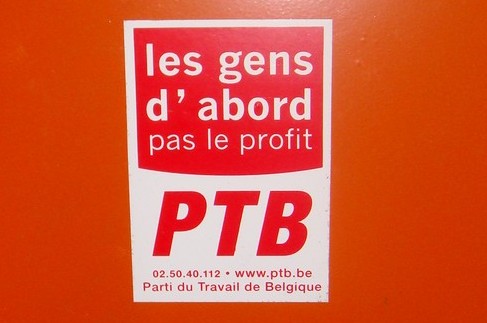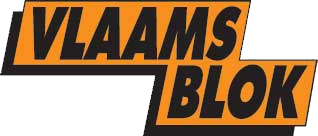|
1978 Belgian General Election
General elections were held in Belgium on 17 December 1978. The Christian People's Party emerged as the largest party, with 57 of the 212 seats in the Chamber of Representatives and 29 of the 106 seats in the Senate. Voter turnout was 94.8%.Nohlen & Stöver, p291 Elections were also held for the nine provincial councils and for the Council of the German Cultural Community. The snap elections were called after Prime Minister Leo Tindemans resigned over the Egmont pact, which would have transformed Belgium into a federal state. Vlaams Blok ''Vlaams Blok'' ( en, Flemish Block, or VB) was the name of a Belgian far-right and secessionist political party with an anti-immigration platform.Erk, 2005, pp. 493-502. Its ideologies embraced Flemish nationalism, calling for the independence ... participated for the first time, which was formed out of disagreement within the People's Union over concessions in the Egmont pact. Results Chamber of Deputies Senate References {{B ... [...More Info...] [...Related Items...] OR: [Wikipedia] [Google] [Baidu] |
Chamber Of Representatives (Belgium)
The Chamber of Representatives (Dutch: , french: link=no, Chambre des représentants, german: link=no, Abgeordnetenkammer) is one of the two chambers in the bicameral Federal Parliament of Belgium, the other being the Senate. It is considered to be the " lower house" of the Federal Parliament. Members and elections Article 62 of the Belgian Constitution fixes the number of seats in the Chamber of Representatives at 150. There are 11 electoral districts, which correspond with the ten Provinces (five Dutch- and five French-speaking) and the Brussels-Capital Region. Prior to the sixth Belgian state reform, the province of Flemish Brabant was divided into two electoral districts: one for Leuven and the other, named Brussels-Halle-Vilvoorde (BHV), which encompassed both the 19 bilingual municipalities from the Brussels-Capital Region and the 35 Dutch-speaking municipalities of Halle-Vilvoorde in Flemish Brabant, including seven municipalities with linguistic facilities for French-spe ... [...More Info...] [...Related Items...] OR: [Wikipedia] [Google] [Baidu] |
Dieter Nohlen
Dieter Nohlen (born 6 November 1939) is a German academic and political scientist. He currently holds the position of Emeritus Professor of Political Science in the Faculty of Economic and Social Sciences of the University of Heidelberg. An expert on electoral system An electoral system or voting system is a set of rules that determine how elections and referendums are conducted and how their results are determined. Electoral systems are used in politics to elect governments, while non-political elections ma ...s and political development, he has published several books. IDEA Bibliography Books published by Nohlen include: *''Electoral systems of the world'' (in German, 1978) *''Lexicon of politics'' (seven volumes) *''Elections and Electoral Systems'' (1996) *''Electi ...[...More Info...] [...Related Items...] OR: [Wikipedia] [Google] [Baidu] |
Alle Macht Aan De Arbeiders
The Workers' Party of Belgium (french: Parti du Travail de Belgique, PTB; nl, Partij van de Arbeid van België, PVDA; ) is a Marxist and socialist political party in Belgium. It is one of the few Belgian parties that is a fully national party, representing both Flanders and Wallonia. Having traditionally been a small party, the PTB-PVDA has gained momentum since the 2010s, continuously scoring better at the polls and elections, particularly in Wallonia and working-class communities in Brussels. History The Workers' Party of Belgium originated in the student movement at the end of the 1960s. Students (organized in the student union ''SVB'' - ''Studenten VakBeweging''), mainly from the Catholic University of Leuven, turned towards the working-class movement. They considered the politics of the existing Communist Party of Belgium revisionist, i.e. too much turned toward social-democratic politics (represented in Belgium by the Belgian Socialist Party). They were influenced by th ... [...More Info...] [...Related Items...] OR: [Wikipedia] [Google] [Baidu] |
Democratic Union For The Respect Of Labour
Democrat, Democrats, or Democratic may refer to: Politics *A proponent of democracy, or democratic government; a form of government involving rule by the people. *A member of a Democratic Party: **Democratic Party (United States) (D) **Democratic Party (Cyprus) (DCY) **Democratic Party (Japan) (DP) **Democratic Party (Italy) (PD) **Democratic Party (Hong Kong) (DPHK) **Democratic Progressive Party (DPP) **Democratic Party of Korea **Democratic Party (other), for a full list *A member of a Democrat Party (other) *A member of a Democracy Party (other) *Australian Democrats, a political party *Democrats (Brazil), a political party *Democrats (Chile), a political party *Democrats (Croatia), a political party *Democrats (Gothenburg political party), in the city of Gothenburg, Sweden *Democrats (Greece), a political party *Democrats (Greenland), a political party *Sweden Democrats, a political party * Supporters of political parties and democracy movements in H ... [...More Info...] [...Related Items...] OR: [Wikipedia] [Google] [Baidu] |
Walloon Rally
The Walloon Rally (french: Rassemblement wallon; RW) is a regionalist political party in Belgium, active in Wallonia since 1968. The party favoured federalism and since 1985 independence. Founded on 7 March 1968, the party contested the Belgian general election of 1968 in a coalition with the FDF, a Brussels-based francophone political party, receiving 5.9% of the vote nationally. The party's own results in elections to the Belgian Federal Parliament were as follows. The increasing federalisation of Belgium, and the adoption of some of the party's policies by the traditional francophone parties, resulted in a sharp decline in electoral support from 1977 onwards. A split in the early 1980s created the Walloon Popular Rally, a more left-wing grouping, which later merged with the Socialist Party. The Wallonia-France Rally, which supports the union of Wallonia and France, was formed by the rump of the party's membership in 1999. Afterwards, the Walloon Rally left the WFR and ... [...More Info...] [...Related Items...] OR: [Wikipedia] [Google] [Baidu] |
Communist Party Of Belgium
french: Parti Communiste de Belgique , abbreviation = KPB-PCB , colorcode = , leader1_title = Historical leaders , leader1_name = Joseph JacquemotteJulien LahautLouis Van Geyt , founder = Julien Lahaut , founded = , dissolved = , merger = Communist PartyBelgian Communist Party , successor = Kommunistische Partij Parti Communiste , headquarters = Brussels , newspaper = ''De Roode Vaan'' (Flemish)''Le Drapeau Rouge'' (French) , youth_wing = Communist Youth of Belgium , wing1_title = Paramilitary wing , wing1 = Partisans Armés (1940-43) , membership_year = 1965 , membership = 11,000 (peak) , ideology = CommunismEurocommunism , position = Far-left , international = Comintern (1919–1943)Cominform (1947–1956) , european = , europarl = Communist and Allies Group (1973–1989) , colours = Red , country = Belgium The Communist Party of Belgium ( nl, Kommunistische Partij van België, or KPB; french: Parti Communiste de Belgique, PCB) was a political party ... [...More Info...] [...Related Items...] OR: [Wikipedia] [Google] [Baidu] |
Party Of Reforms And Freedom Of Wallonia
The Liberal Reformist Party (french: Parti Réformateur Libéral, PRL) was a liberal political party active in Wallonia and Brussels in Belgium. The PRL grew out of the Francophone part of the unitary liberal Party for Freedom and Progress (PVV-PLP) in 1971 and merged into the Reformist Movement (RM) in 2002. History In 1971, the Party for Freedom and Progress (PVV-PLP), inheritor to the historical Liberal Party of Belgium, split into a Flemish and a Francophone party, anticipating the political devolution bill of 1980. Initially keeping the French version of the old party name (''Parti de la liberté et du progrès''), the party relaunched as the ''Party of Reforms and Freedom of Wallonia'' (Parti des réformes et de la liberté de Wallonie, PRLW) after taking over the Walloon Rally. In Brussels, the French-speaking Liberals co-operated intensively with the Democratic Front of the Francophones (FDF). In 1979, the Francophone liberals of the capital merged into the PRLW, which too ... [...More Info...] [...Related Items...] OR: [Wikipedia] [Google] [Baidu] |
Party For Freedom And Progress
The Party for Freedom and Progress ( nl, Partij voor Vrijheid en Vooruitgang; french: Parti de la Liberté et du Progrès; german: Partei für Freiheit und Fortschritt, PVV-PLP) was a liberal political party in Belgium which existed from 1961 until 1992. The party was the successor of the Liberal Party, which had roots dating back to 1846. It was succeeded in the Flemish Community of Belgium by the Flemish Liberals and Democrats (VLD) and in the French Community by the Liberal Reformist Party, '' Parti des Réformes et des Libertés de Wallonie'' and the current-day Reformist Movement. In the German-speaking Community, it still exists as the Party for Freedom and Progress. History Foundation of a new party In 1961, Omer Vanaudenhove, leader of the Liberal Party, reorganised it into the Partij voor Vrijheid en Vooruitgang/Parti de la Liberté et du Progrès (PVV/PLP). The new party, among other things, jettisoned the Liberals' traditional anti-clericalism. In 1965 the party obt ... [...More Info...] [...Related Items...] OR: [Wikipedia] [Google] [Baidu] |
Belgian Chamber 1978
{{Disambiguation ...
Belgian may refer to: * Something of, or related to, Belgium * Belgians, people from Belgium or of Belgian descent * Languages of Belgium, languages spoken in Belgium, such as Dutch, French, and German *Ancient Belgian language, an extinct language formerly spoken in Gallia Belgica *Belgian Dutch or Flemish, a variant of Dutch *Belgian French, a variant of French *Belgian horse (other), various breeds of horse *Belgian waffle, in culinary contexts * SS ''Belgian'', a cargo ship in service with F Leyland & Co Ltd from 1919 to 1934 *''The Belgian'', a 1917 American silent film See also * *Belgica (other) *Belgic (other) Belgic may refer to: * an adjective referring to the Belgae, an ancient confederation of tribes * a rarer adjective referring to the Low Countries or to Belgium * , several ships with the name * Belgic ware, a type of pottery * Belgic Confession, a ... [...More Info...] [...Related Items...] OR: [Wikipedia] [Google] [Baidu] |
Vlaams Blok
''Vlaams Blok'' ( en, Flemish Block, or VB) was the name of a Belgian far-right and secessionist political party with an anti-immigration platform.Erk, 2005, pp. 493-502. Its ideologies embraced Flemish nationalism, calling for the independence of Flanders. The party originated from split within the Volksunie (VU) party after the right-wing separatist and national conservative wing became disgruntled with the compromise of accepting Belgian federalism over Flemish interests, and what they saw as the VU's move to the left. The former VU members created the Flemish National Party (VNP) and the Flemish People's Party (VVP) which formed an electoral alliance called ''Vlaams Blok'' in 1978, before merging to create Vlaams Blok as a political party in 1979. ''Vlaams Blok'' was the most notable militant right wing of the Flemish movement and its track record in the Flemish and Belgian parliament elections was strong, making it one of the most successful nationalist parties in Western Eu ... [...More Info...] [...Related Items...] OR: [Wikipedia] [Google] [Baidu] |
Egmont Pact
The Egmont pact ( nl, Egmontpact; french: Pacte d'Egmont; german: Egmont-Pakt) of 1977 is an agreement on the reform of Belgium into a federal state and on the relations between the linguistic communities in the country. The pact was not carried out due to the resignation of the government, but important elements of the pact were used in later Belgian state reforms. The pact was agreed in 1977 between the majority parties of the government Tindemans IV, which was a coalition between CVP, PSC, BSP-PSB, Volksunie and FDF. It was named after the Egmont Palace in Brussels, where the negotiations took place. The pact was supplemented with the "Stuyvenberg agreement" later the same year. Both would be called the "Community pact". Content The Egmont pact covered agreements on a number of various topics: * The establishment of autonomous councils and executives (a government) for the three communities in Belgium (which followed the establishment of the three Cultural Communities in ... [...More Info...] [...Related Items...] OR: [Wikipedia] [Google] [Baidu] |




